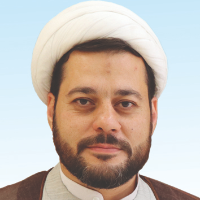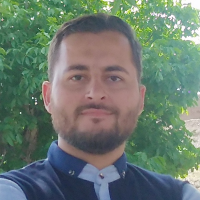Exploring Breaks & Bonds - A Reflection on the Proof of Disjunction and Conjunction
According to Aristotle, a body is a reality composed of two substances (jawhar) called "material form" and "primary matter." This belief has been accepted by the majority of Muslim philosophers, and they have made significant efforts to prove this theory. The proof of "fasl and wasl" (disjunction and conjunction) is one of the most important arguments for proving the existence of the primary matter and the composition of a body from matter and form. This proof was first put forward by the Muslim philosophers and cannot be found in the works of earlier philosophers. In this argument, based on the continuity and discontinuity of the body, the existence of a constant element called "matter" or "primary matter" is argued, which guarantees the unity and identity of body through its everlastingness. It seems that despite the extensive efforts of Muslim philosophers to strengthen this argument and eliminate its doubts and ambiguities, ultimately, it faces serious challenges and is unable to prove the existence of the primary matter. In this article, we first elaborate on the interpretation of the proof of "fasl and wasl" (disjunction and conjunction) and then critique it. The criticisms raised include the failure to prove the separability of the body, confusion between the meanings of connection, lack of exclusivity of potential connection and disconnection in primary matter, the contradiction of the proof with the matter itself, and more.
-
Gender Change and Its Possibility from the Perspective of Sadra'i Philosophy
Mohammadmehdi Kamali*
Wisdom and Philosophy, -
A new approach in the analysis of the truth of potential
Mohammadmahdi Kamali *
Journal of Existence and Knowledge, -
The Analysis and Comparison of Two Different Approaches of Ṣadr al Muta'allihīn in the Philosophical Justification of the Diffusion of the Knowledge to Material Objects
MuhammadHadi Kamali *, Jahangir Masoudi, Seyyed Hossein Seyyed Mousavi
Journal of Islamic Philosophical Doctrines, -
The Examination of “Verbal Witnessing of material Body in the Hereafter” and its Implication that Solid Bodies have Intelligence in the Light of Transcendent Theosophy
*, Jahangir Masoodi, Seyyed Hosein Seyyed Moosavi
Hikmat - e - Islami,




